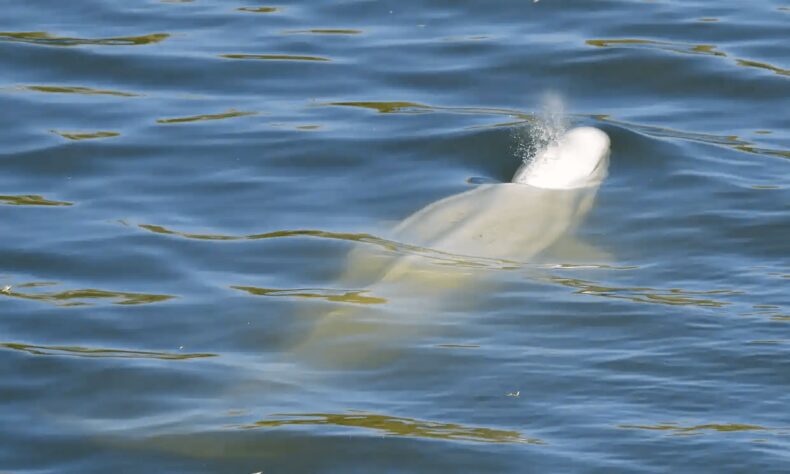According to experts, the whale was acting nervously and only briefly rose to the surface. Rescuers concerned for whale stuck in French river seine

Following the discovery of a beluga whale in France’s River the Seine, authorities are considering how to conserve a species that is more suited to the icy waters of the Arctic. The animal is reportedly currently close to a lock at Vernon, which is located around 70 kilometers northwest of Paris. The whale that seems underweight is being warned to stay away from by the general public.
Why the whale has traveled so far south from its usual habitat is a mystery to experts. A whale stuck in the French river seine is concerned for Rescuers.
In an effort to help the starving mammal that is refusing food, French authorities planned to give vitamins to the beluga whale on Saturday as it swam up the Seine. Vitamin injections are intended to increase the animal’s appetite. When rescuers tried to feed it frozen herring and later live trout, nothing seemed to be accepted.
The decision has not yet been made, but authorities were debating whether to keep the animal in the river so it might regain its appetite or to direct it back toward the sea. Its pale skin had developed a few small patches, but experts weren’t yet sure if they were a result of the fresh water’s natural effects or symptoms of a medical condition.
It was apparently not producing many of the chirps and quicks that whales are known for, according to sonar recordings, which further raises questions about the health of the mammal.
While they do come south in the autumn to feed when ice builds, belugas are often mainly seen in the icy seas of the Arctic.
A killer whale was discovered dead in Normandy in May after swimming up the River Seine. It was determined afterward that the four-meter male orca was gravely unwell after an attempt to use sound cues to guide it back to the sea failed.
2019 saw the discovery of a dead whale in the River Thames close to Gravesend, according to UK authorities. This occurred only a few weeks after the passing of a humpback whale that had been spotted in the same area of water. It was believed to have entered the Thames due to a navigational mistake, perhaps at high tides.













